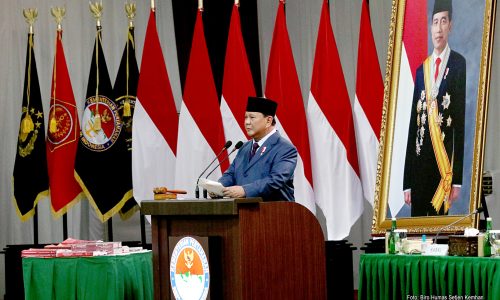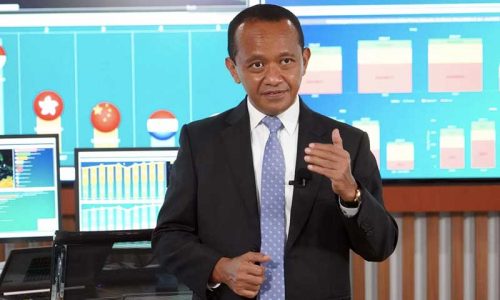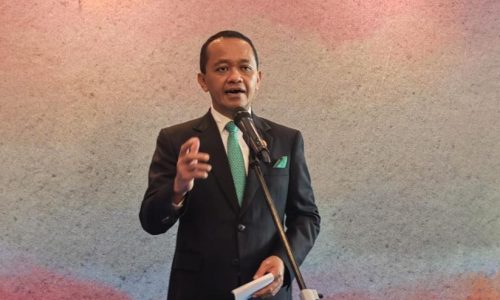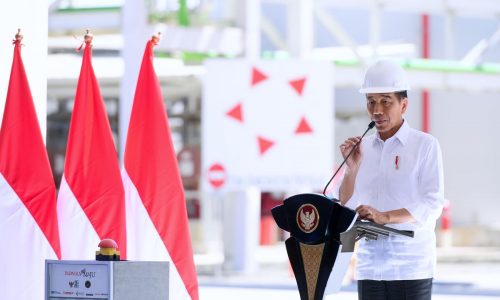Civil society orgfanizations offer a bunch of policy recommendations in the energy sector for the first 100 days of the Prabowo Subianto-Gibran Rakabuming Raka administration, suggesting measures for the acceleration of energy transition to realize the globally-campaigned green economy and improve people’s welfare
In a discussion co-organized by Katadata Insight Center (KIC) and the Prabowo-Gibran Eight-percent Growth Team on Thursday, September 12, 2024, the organizations, grouped under the Civil Society Coalition for Equitable Energy Transition, emphasized the importance of energy policies that prioritize renewable energy, setting aside new energy sources, such as nuclear, coal downstreaming, carbon capture and storage/carbon capture, utilization, and storage (CCS/CCUS) technology, and natural gas, which are high in emissions and expensive.
“There needs to be an evaluation on energy sector policies, including the National Energy Policy and the Draft Law on New and Renewable Energy. Energy transition has the potential to create more than one million green jobs by 2050, while driving more inclusive and environmentally friendly economic growth,” Indra Sari Wardani, Acting Program Director of Koalisi Indonesia, said.
She added that the new president must also immediately formulate a roadmap for early retirement of coal fired power plants (PLTUs) and prepare its safety network, as a follow-up to Presidential Regulation No. 112/2022 on the Acceleration of New and Renewable Energy Development.
Agung Budiono, Executive Director of CERAH Foundation, revealed that the sooner the early retirement of PLTUs is implemented and replaced with renewable energy, it will bring greater economic benefits to Indonesia.
“The findings of the Celios and CERAH Research related to the economic impact of early retirement at PLTU Cirebon-1, PLTU Pelabuhan Ratu, and PLTU Suralaya are projected to have an impact on gross domestic product (GDP) with an increase of up to Rp82.6 trillion US$5.3 billion),” Agung said.
Tunggal Pawestri, Executive Director of the Humanis Foundation, added that in the context of the PLTU early retirement, it is important to highlight its direct impact on vulnerable communities, especially workers, informal groups and communities that depend on this sector.
“Social security protection policies, training programs, and the creation of new local jobs must be an integral part of the transition, so as not to worsen the welfare of the most affected communities,” Pawestri said.
The coalition suggested the importance of financing incentives for energy industry players to switch to renewable energy, as well as empowering and increasing access to financing for MSMEs and cooperatives for community-based renewable energy development. This ease is expected to encourage the growth of energy independence at the community level so that it can anticipate the growth of energy needs in the future.
The coalition also suggested that environmental, social and good governance (ESG) aspects need to be made a requirement for investment licensing.
“Without strong safeguards, renewable energy development can have significant consequences for the environment and local communities. Moreover, global financial institutions are increasingly highlighting ESG aspects in channeling project financing,” Irfan Bakhtiar, Director of Climate and Market Transformation at WWF-Indonesia Foundation, said.
Policy program evaluation
The coalition also highlighted the need for an evaluation of programs that have been running in the era of President Joko Widodo. It suggested that the President-elect needs to review the biofuel program, namely the blending of 50 percent biodiesel (B50) and 10 percent bioethanol (E10), as well as the biomass co-firing program in PLTUs, so that they will consider aspects of social justice, environmental carrying capacity, and the competitiveness of the domestic industry.
Nadia Hadad, Director of the Sustainable Madani Foundation, said that the B50 program must be re-evaluated because Madani’s study shows that the carrying capacity and capacity of the environment are already at a critical threshold.
“This means that the opening of new land for oil palm plantations, which are the raw material for biodiesel, must be stopped,” Nadia said.
Anggi Putra Prayoga, a Forest Watch campaigner, added that the practice of co-firing will actually extend the life of the PLTUs and encourage the expansion of forest clearing to meet the target of wood biomass production through Energy Plantation Forest (HTE).
“As a result, Indonesia will actually bear the emission debt. Energy transition should therefore be carried out without destroying forests,” he said.
According to the coalition, another policy that needs to be evaluated is the value of carbon economy (NEK). It suggested the new president to ensure that this NEK policy has a strong safety framework and is able to support the achievement of carbon neutral targets, as well as encourage transparency and accountability in its implementation. This needs to be done so that decarbonization of the industrial sector can be achieved immediately and the allocation of carbon funds can be distributed to green sectors to realize a green economy.
“It is necessary to do mapping to strengthen the rules and supervision of the implementation of the NEK instrument safety net, including mandatory ones, such as Environmental Impact Assestment (EIA) and licensing instruments, so as to avoid social and environmental risks from the implementation of NEK by corporations and increase transparency and accountability of NEK implementation.” Raynaldo G. Sembiring, Executive Director of the Indonesian Center for Environmental Law (ICEL), said.
The coalition cited that the implementation of this equitable energy transition can be achieved through community participation.
“There needs to be meaningful active involvement of the community in the preparation of energy policies so as to create policies that are responsive to local needs and effective implementation. The energy transition is expected to not only support economic targets, but also create a more sustainable and just future for all Indonesians,” Bhima Yudhistira, Executive Director of Center of Economic and Law Studies (Celios), said.









